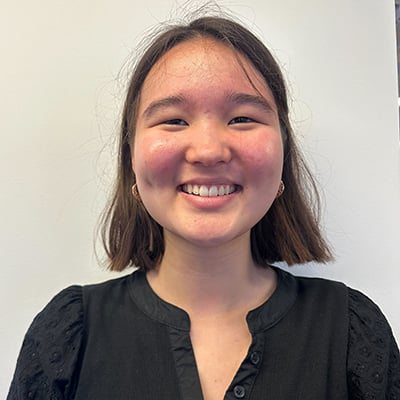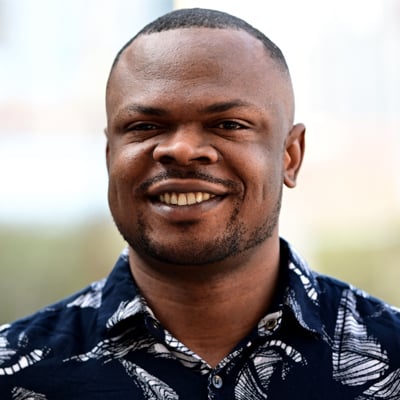CHICAGO – Arizona Sen. Mark Kelly, fresh from Kamala Harris’ vice presidential short list, kicked off the morning for Wisconsin Democrats on Tuesday with a plea to avoid complacency and get voters to the polls.
“We cannot allow Donald Trump to get within a mile of the White House again,” the former astronaut told the breakfast crowd on Day 2 of the Democratic National Convention. “This is not rocket science. It isn’t. If it was, I could help you with that.”
Kelly’s remarks were aired on C-Span and open to journalists, as state delegation breakfasts typically are at the parties’ conventions every four years.
But in 2024, the Arizona Democrats and Republicans both denied access to journalists, puzzling some delegates who said there was nothing sensitive – just the usual speechifying and daily pep rally.
“It’s a good way for the Democrats from Arizona to see who else is there and meet each other because in a venue like this, people are from all over the country,” said Ellen Ferreira, one of the Arizona Democratic Party’s 91 delegates in Chicago and president of the Sedona-area Democrats of the Red Rocks. “Nothing high level or secretive went on. I don’t see any reason why the press wasn’t (there).”
Other delegates also had no explanation for excluding news media from the Arizona delegation’s breakfast meetings.
The state Democratic Party’s spokeswoman, Patricia Socarras, said by email that while delegates would be available for interviews, the breakfast was “not open to the press.” She provided no explanation, or speaker lists.
Arizona Republicans similarly refused to let in reporters at the GOP convention in Milwaukee in June.
For both Arizona parties, barring news media from delegation breakfasts is a departure from previous national conventions – and from the tradition of openness continued by other state delegations this year. These morning gatherings are a major focus on the delegates’ day, an opportunity to hear from state and national party luminaries and size up future contenders.
New York delegates, for instance, heard Monday morning from Empire State VIPs – Gov. Kathy Hochul, Senate Majority Leader Chuck Schumer and House Minority Leader Hakeem Jeffries – and from Minnesota Sen. Amy Klobuchar, according to the American Prospect and other news reports.
The Georgia delegation heard from Sen. Raphael Warnock.
“Donald Trump tried to steal Georgia’s votes,” he said, according to Politico, referring to a call pressuring the state’s top elections official to somehow find enough votes to tip the 2020 election his way. “Kamala Harris is trying everything she can to earn our votes.”
Wisconsin delegates heard not only from Kelly but also from Minnesota Gov. Tim Walz – Harris’ choice for running mate.
Walz also made a surprise appearance at the Pennsylvania breakfast, according to MinnPost, though Minnesotans had to make do on Monday with Klobuchar and the state’s lieutenant governor.
The Illinois delegation heard from Walz’s wife, Gwen Walz, according to Axios, plus their own governor, JB Pritzker, and New Jersey Sen. Cory Booker.
That’s a sampling of the breakfast events open to the press in Chicago this week.
On Wednesday, Gov. Katie Hobbs headlined the Arizona breakfast, along with Booker and Michigan Gov. Gretchen Whitmer.
On Tuesday, Maryland Gov. Wes Moore, a rising Democratic star, spoke to the Arizona delegation along with Education Secretary Miguel Cardona and Interior Secretary Deb Haaland, the first Native American to serve as a cabinet secretary.
That’s all according to delegates in the room who provided that information to Cronkite News; the state party itself has declined even to identify speakers.
At the Arizona breakfast on Monday, delegates heard from Secretary of State Adrian Fontes, Tucson Mayor Regina Romero and Phoenix Mayor Kate Gallego – and they were “amazing,” according to a social media post by delegate Stephen Roe Lewis, governor of the Gila River Indian Community.
Day 1: Just finished w/ @azdemparty breakfast. Amazing speeches by @Adrian_Fontes @TucsonRomero @KateWGallego and amazing Arizona tribal leaders! @DNCNatives @DNC pic.twitter.com/A4DTq7qkGY
— stephenroelewis (@crimpima) August 19, 2024
“It was nice, kind of building up the energy because everyone is tired and it was early,” said Llama Habern, a first-time delegate and co-founder of the Rural Organizing Initiative. “It was fun that we all have the Arizona shirts.”
Habern said the state party chair, Yolanda Bejarano, also addressed delegates, that Fontes “was really good at getting a room going,” and that delegates rallied around the goal of “taking back the Senate.”
Asked later why the event wasn’t open to reporters, Gallego said she was “happy to share anything I said.”
“We have had reporters around all the time,” Gallego said. “When Arizona landed, most of our delegation did interviews at the baggage claim. So I feel like it’s been great representation for the Arizona media.”
Tom Morrissey, a former chair of the Arizona Republicans, said he allowed reporters into the delegate breakfasts at the 2012 convention, but times have changed.
“I don’t recall my keeping the press out because I believe in open discussion, but the temperature of the country and the landscape has shifted substantially,” he said by phone. “It’s a judgment call. I guess if I were chairman today, there might be times or circumstances where I wouldn’t allow somebody in that I thought might compromise the integrity of the meeting.”
Kansas Democrats closed their Monday breakfast to the media but said that was an isolated decision.
“Some folks do not want press there for various reasons, whether it’s to protect their identity, job security, that kind of stuff, but they might have really compelling stories or history that is motivating to our delegation, so we still want them there,” said Matthew Lang, communications director for Kansas Democrats. “Otherwise, we open up the space to the press.”
In 2016, Arizona Democrat and Republican delegation breakfasts provided insights into how the conventions intersected with Arizona issues and campaigns, as documented by Arizona news outlets.
Black Lives Matter discussions stood out in the Democrats’ meeting that year, soon after Dalvin Hollins, a Black robbery suspect in Tempe, was shot and killed by police.
That year, Arizona GOP leaders called for party unity after the divisive primaries that led to Trump’s nomination. They discussed outreach to independent voters and previewed campaign strategies.



